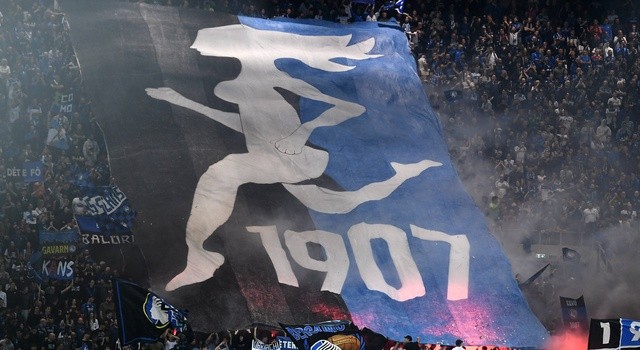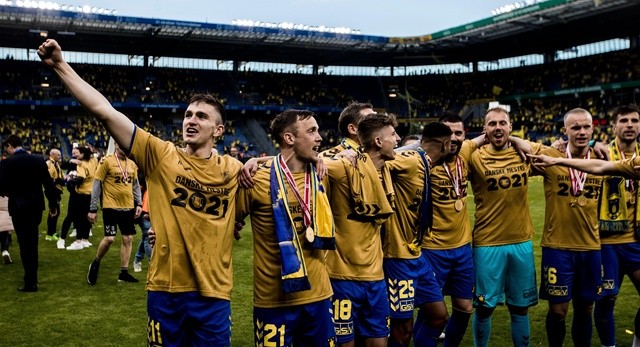Off The Pitch ranks Norwegian sensation as European leader of financial sustainability

IMAGO | Patrick Berg of FK Bodo Glimt celebrates after scoring the team s first goal during a Conference League match against Ajax
Off The Pitch crowns the most financially-sustainable club in European football, based on a set of weighted proportional metrics.
Keeping up with inflated sums of money remains difficult for many clubs, especially smaller ones. However, for well-managed clubs, entering the big European stage is achievable.
Why it matters: Financial sustainability is here to stay – and those who stand out should be acknowledged.
The perspective: Adapting finances to maintain a healthy core business, efficiently managing assets to generate profit, and reducing dependence on external creditors create the ideal recipe for financial sustainability.
19 June 2024 - 1:00 PM
In recent years, multiple football clubs have faced financial difficulties, exacerbated by the impact of the Covid-19 pandemic. On the other hand, the influence of wealthy investors and state-funded investments has increased the financial pressure for other clubs to remain competitive.
Consequently, football’s regulatory bodies have intensified their scrutiny of club finances. Based on this, recent seasons have seen intensified discussions around club ownership, legal charges, points deductions and salary caps to maintain an equal playing field.
Modern football now demands a balance between financial sustainability and on-field success, a balance increasingly challenging to achieve. Recognising clubs that stands out financially, highlights those that innovate and operate efficiently, ensuring both short-term and long-term success.
Therefore, Off The Pitch is once again crowning Europe’s most financially sustainable clubs using a weighted model based on EBITDA-margin, Return-on-Assets (excluding exceptional income) and Equity-ratio across 245 clubs.
To further honor persistent financial sustainability, our ranking includes the last three fiscal periods – 2020/21, 2021/22 and 2022/23 – with the most recent period weighted the most. This approach diminishes seasonal anomalies and enhances the latest financial figures.
Additionally, clubs for which we cannot accurately identify transfer income within their total turnover have been excluded from the ranking to prevent artificially inflated EBITDA margins.
Clubs relegated in the 2022/23 season have been slightly penalized as financial sustainability must still align with on-field success.
Who is the most financially-sustainable club?
This year the fast-growing Norwegian club FK Bodø/Glimt tops the list.
In 2018, Bodø/Glimt narrowly avoided relegation, but by the next year, they finished as runners-up in Norway’s top division. Since then, the club have won three league titles out of four possible – which also becomes the first titles in the history of the club, cementing their impressive rise to the top.
Bodø/Glimt’s impressive rise in Norwegian and European football has positively impacted their finances. Based on the Off The Pitch sustainable rankings, Bodø/Glimt placed 7th in 2021 and 3rd in 2022, ultimately securing this year’s top spot. Since 2018, the club have more than quadrupled its turnover, reaching €23.5 million during the most recent fiscal period.
Looking at the recent turnover figures, Bodø/Glimt achieves an EBITDA-margin score of 22.8, indicating a healthy core business.
Additionally, Bodø/Glimt earned a Return-on-Assets score of 20.3 and an Equity-ratio score of 60.1, securing a total score of 29.5, well ahead of second place, and domestic competitors, Molde.
Their domestic success has also boosted their European profile, with clubs like Arsenal and AS Roma visiting the small town of Bodø for Europa League and Conference League games in recent seasons.
For a relatively small club like Bodø/Glimt, the European participation money constitute a significant part of their revenue, with the UEFA payments accounting for approximately 41 percent of total turnover during the 2023 fiscal year.
However, this also means that in order to maintain revenue levels comparable to recent seasons, UEFA payments are crucial in the short term. Ultimately, a season without European football could still significantly alter the financial landscape for a club with the size of Bodø/Glimt.
Familiar faces reign the rest of the list
Six of last year’s top ten clubs remain, with Bayern Munich, Malmo FF, Tottenham and SD Eibar falling out. Molde have risen six spots from last year’s 8th place, while also Norwegian club Brann enters the top ten for the first time.
From Denmark, AGF – Aarhus dropped four places to 8th, while Silkeborg IF debuts in 5th place after a 2022/23 season in the Conference League group stages. Swedish club, Djurgaarden also makes the list, highlighting the continued Scandinavian dominance of recent years sustainable rankings.
Last year’s most financially sustainable club, Atalanta BC, have fallen to 6th place after their first season in many years absent from any of the European tournaments, leading to a dip in their key financial figures. Despite this, their financials remain positive.
Overall, Italian football has struggled with financial difficulties and scandals during the past decade, but the presence of three Italian clubs in the top ten suggests a potential turnaround, as Fiorentina and Napoli enter the list.
Manchester City takes the remaining spot on the list. Their impressive performances on the pitch are undeniable, however with 115 ongoing legal charges and unresolved legal disputes, financial consequences remain possible. For now, their treble-winning 2022/23 season positions them 3rd on the list, an improvement from 5th place last year.
For those wondering, Sheffield Wednesday takes this years last place based on the three selected metrics.

